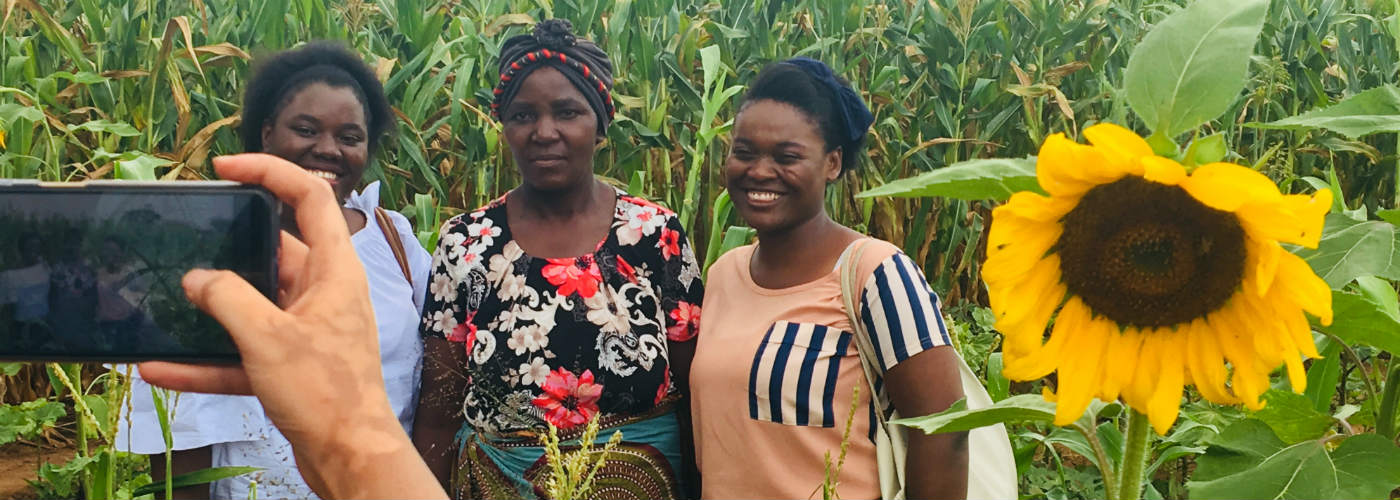Hivos’ Regional Advocacy Manager for Sustainable Diets William Chilufya before commemorations of the International Women’s Day, shared the organization’s vision in promoting women in Agriculture as well as implementation of the Sustainable Diets for All Program (SD4ALL).
By Audrey Mutasa
In the past four years, Hivos has been focusing on implementing the SD4ALL program in Zambia, in trying to increase diversity in the field by contributing to put an end to mono-cropping of maize.
William Chilufya, spoke of the importance of securing food for children, saying the high rate of malnutrition cases in Zambia led Hivos to be part of the program.
“Zambia had about 40 percent of children stunted as a result of mono diets. After the baseline study, we observed that Zambia has a maize fixated policy focusing on producing to meet the country’s energy requirements. Since 2007, government was on average spending 80 percent of the agricultural budget supporting the production and procurement of maize through the Farmer Input Support Programme (FISP) and output price support through the Food Reserve Agency (FRA),” he said.
Hivos has partnered with local Civil Society Organizations like Zambia Alliance for Women (ZAW) in implementing the SD4ALL program through promoting women in Agriculture.
“We selected about five partners to work with and to promote women in Agriculture. We chose Zambia Alliance for Women (ZAW) to lobby and advocate for women issues in the food system and generally encouraging sustainable diets in communities as well as policy level engagement,” said Chilufya.
He has since hailed ZAW for engaging in smart agriculture and ensuring that women take up leadership positions in a male dominated industry. He recalls that during this season’s FISP program, he was happy to see women getting Sorghum though it did not germinate for most of them.
“The government has been willing to move into diversification. The second Agriculture policy is clear; government wants to move away from depending on maize alone. We are not saying get rid of maize completely, we have much more valuable crops in addition to maize. President Lungu last year was very categorical when he told citizens to rethink the dependency on maize. We also saw the vice president Inonge Wina coming out so strongly on crop diversification. However, women need agriculture extension services to teach them how to grow some of these crops. Government needs to ensure that extension officers are increased on the local level,” added Chilufya.
Meanwhile, ZAW has been addressing women issues and providing support to women in agriculture under a project known as “Addressing Women issues in Sustainable Production and Consumption” which is funded by HIVOS under SD4ALL in Lusaka province. In this project, it has also welcomed progress made towards Gender Equality in the Environmental Sector.
ZAW Executive Director Edah Chimya in a phone interview, stressed on the importance of roles played by women in these sectors, proposing a Feminist Agro ecology which will open spaces for women to be autonomous and achieve more power at community level.
“Our Project is addressing women’s issues on Sustainable Production and consumption, aiming at enhancing women participation in agriculture and focusing on working with farmer cooperatives mainly dominated by males in order to influence gender equality. Tusole is one cooperative that is ready to implement this after being very much male dominated. However, we bemoan the impact of climate change and loss of natural resources that it affects mostly poor women in rural areas,” she said.
In terms of enhancing productivity through sustainable agriculture, sustainable diets and resilience, ZAW worked with the MOA to train farmers in crop diversification, conservation farming and climate Smart agriculture.
In return an emerging farmer based in Chilanga, Violet Malama urged women to get involved in farming. She said she has benefited a lot in terms of capacity building from ZAW and Hivos.
“Most of these women clubs are agriculture oriented so women please join these groups, interact with people, do not underrate them, you will learn a lot. I would urge married women specially to learn to network and push themselves,” said Malama.
She added that through her relations with ZAW, ZNFU and other partners she has traveled to different countries such as Kenya, Ethiopia for short training programs in farming and since opened a cooperative for women in Chilanga.
“If people start thinking agriculture, there will be no hunger on Earth. I like good life and I like, good food, good clothes. I want to enjoy my life and keep up with such a life, I need to work hard,” she exclaimed.
This year’s theme “I am generation equality. Realizing Women’s Rights” comes in line with the 25th Anniversary of the Beijing declaration and platform for action of 11th December, 2019.




